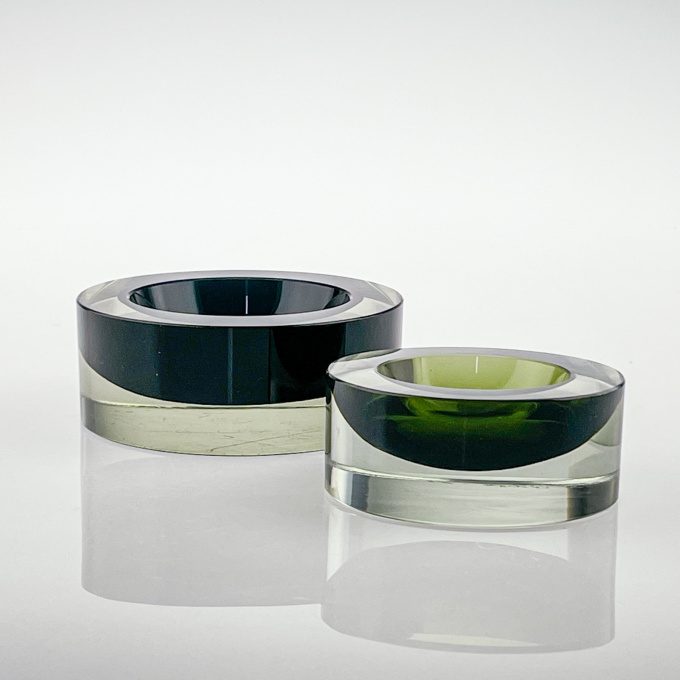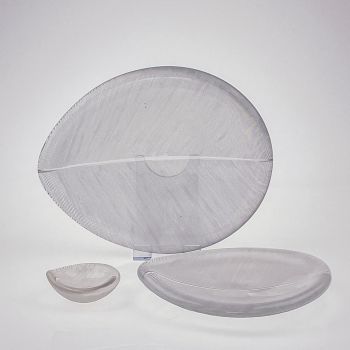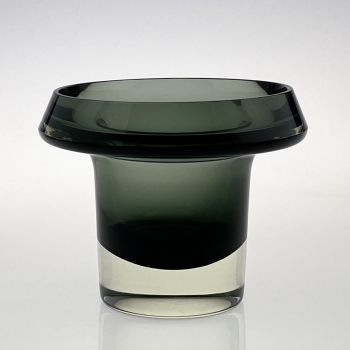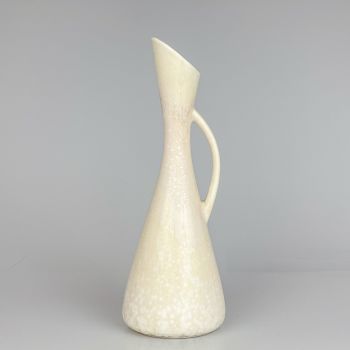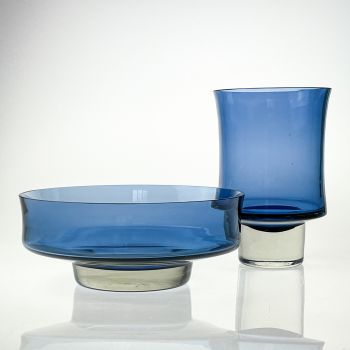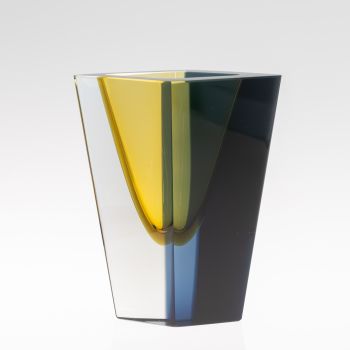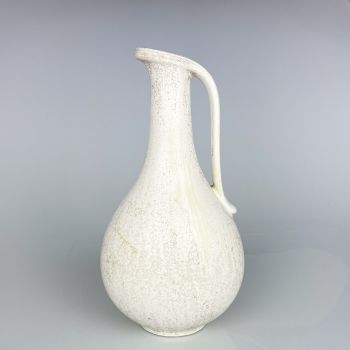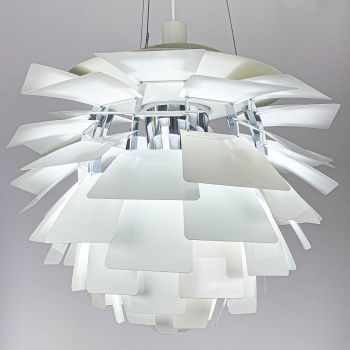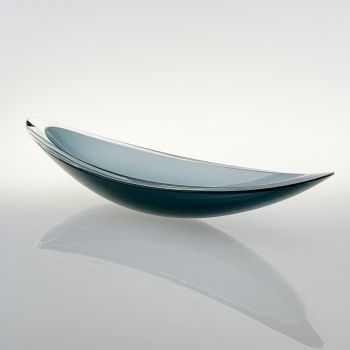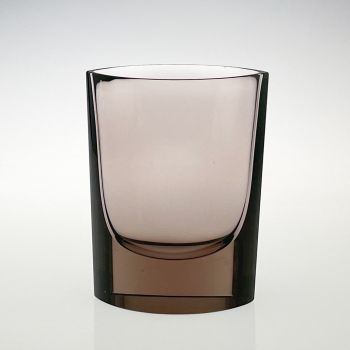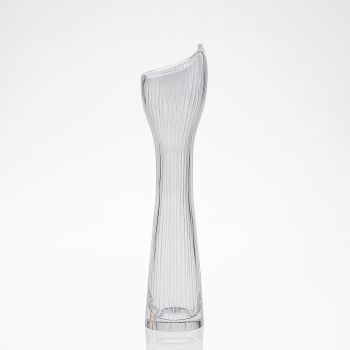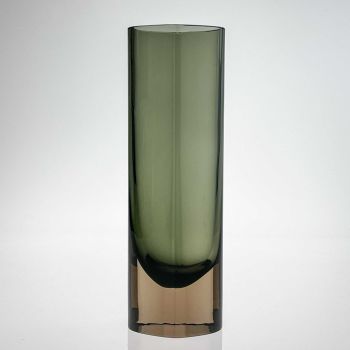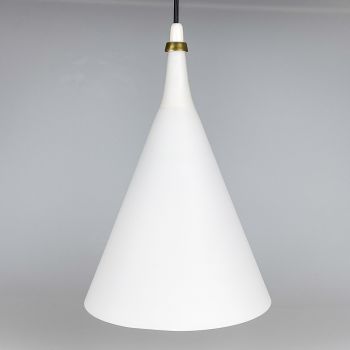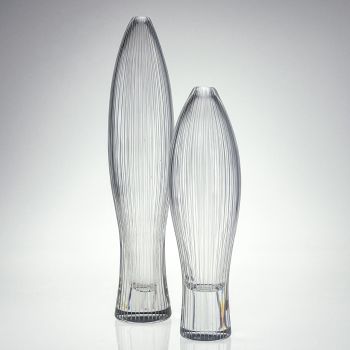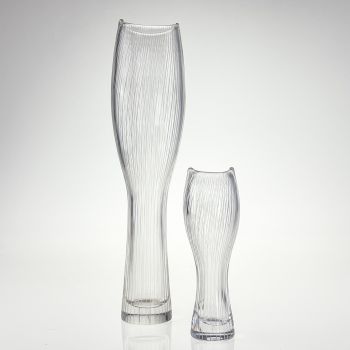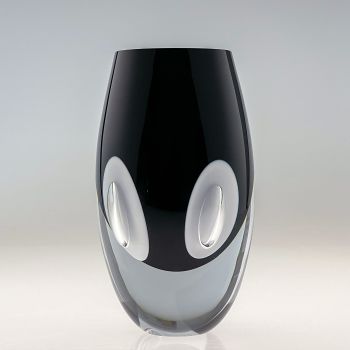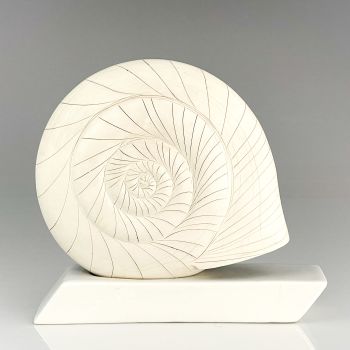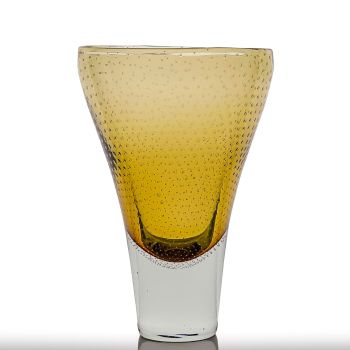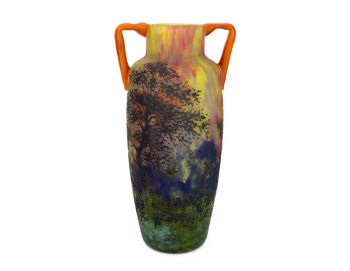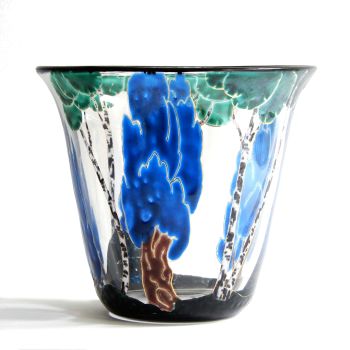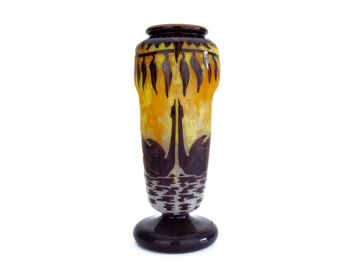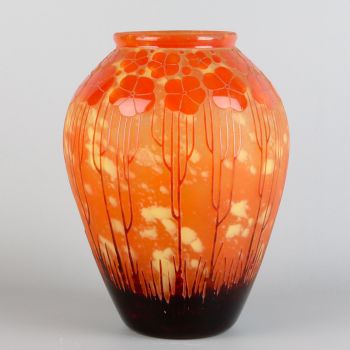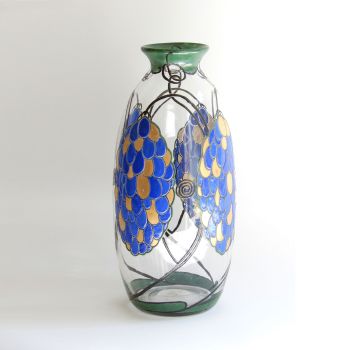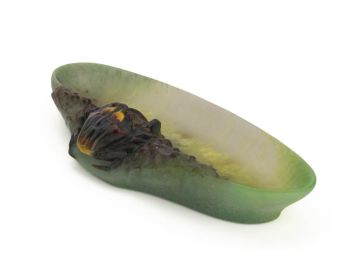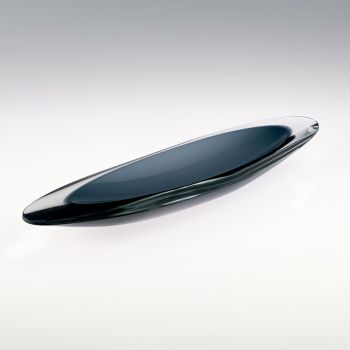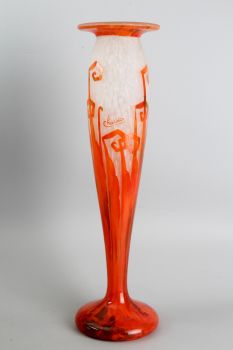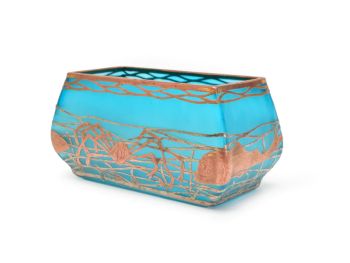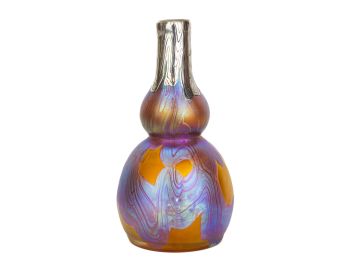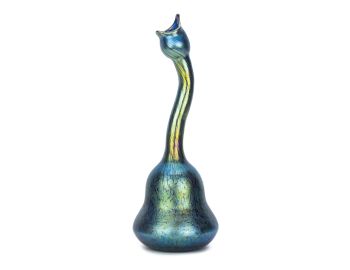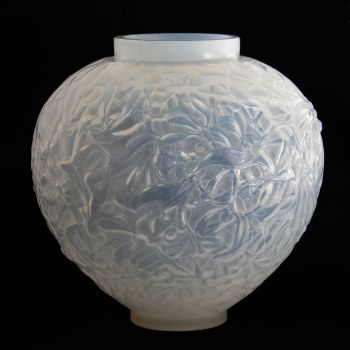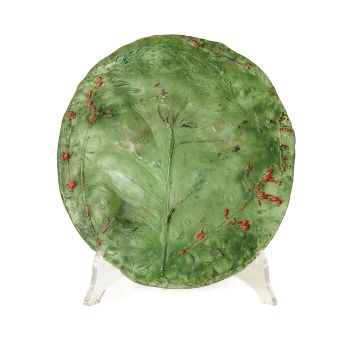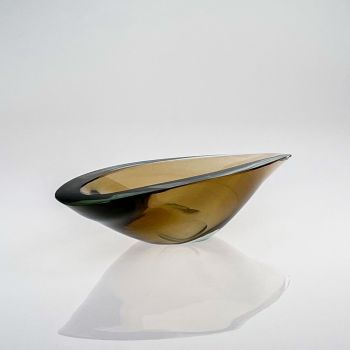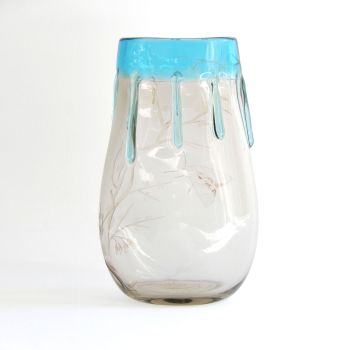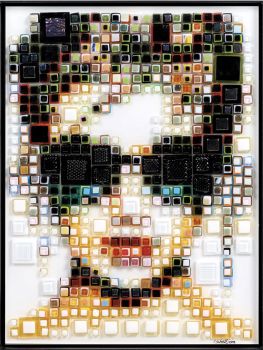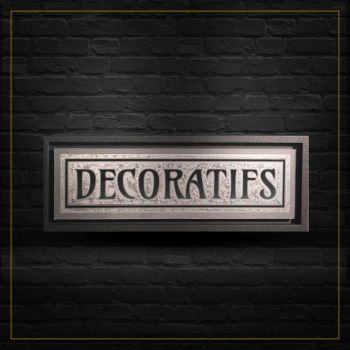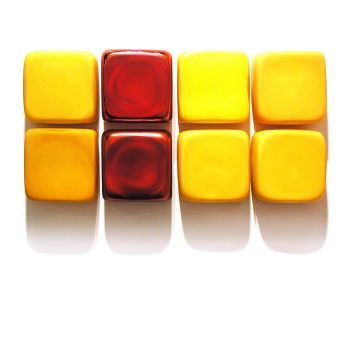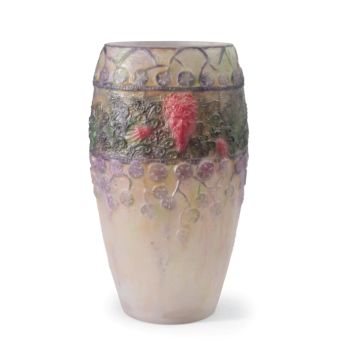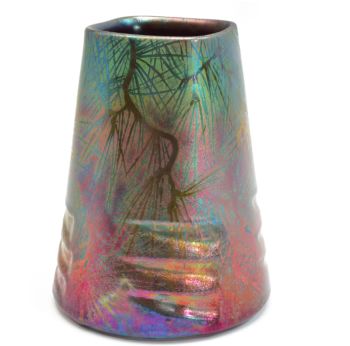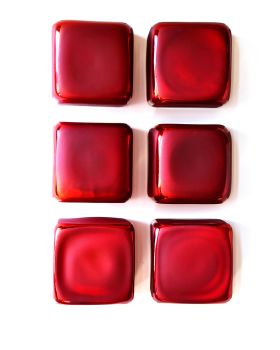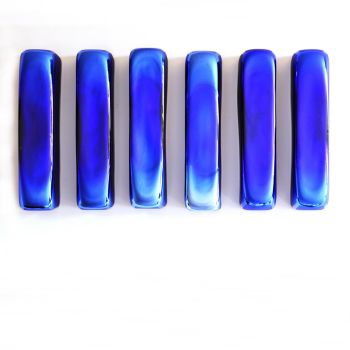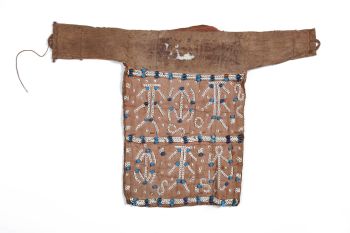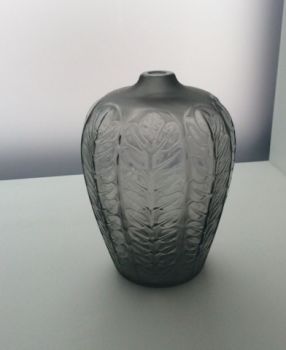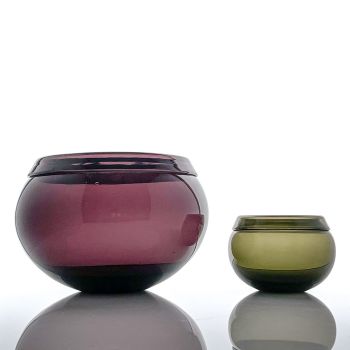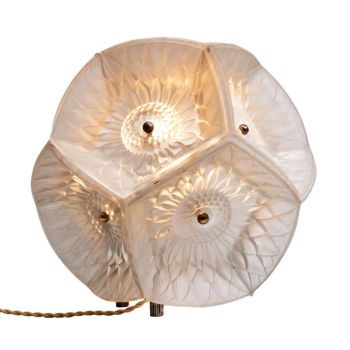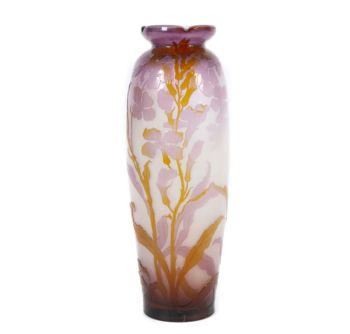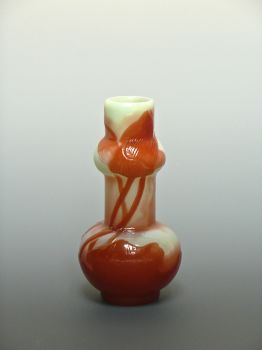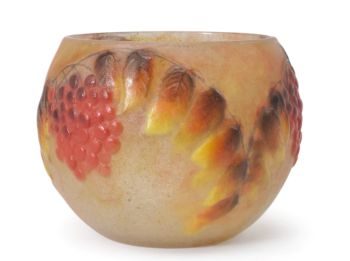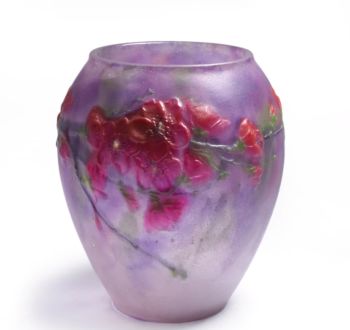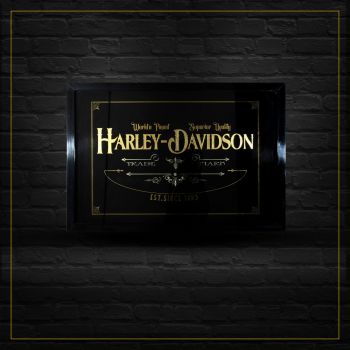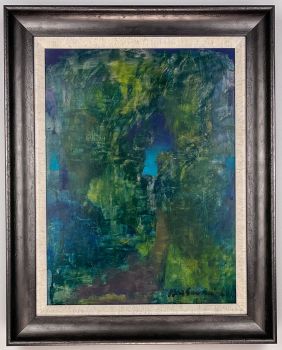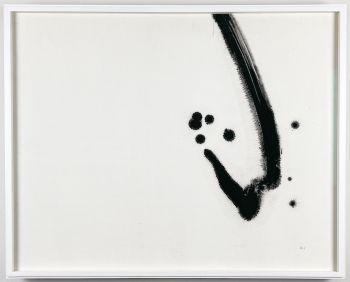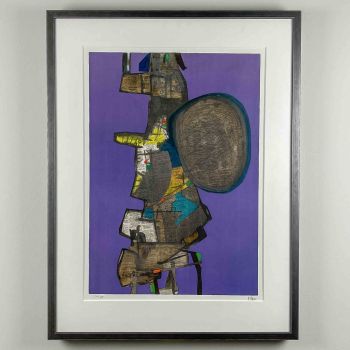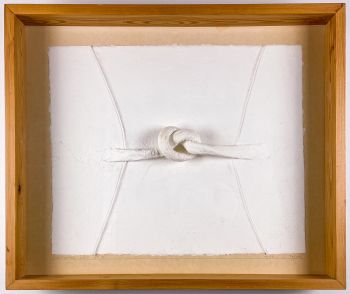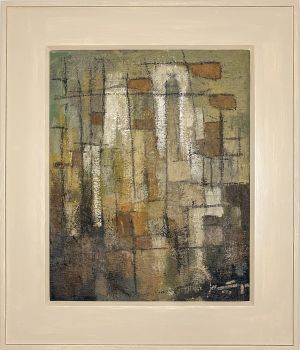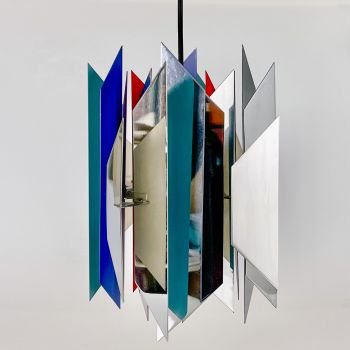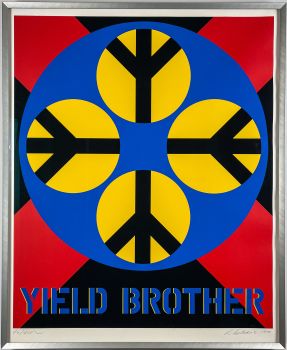A set of two sizes Art-object, model SH 117, Nuutajärvi-Notsjö Finland 1958 & 1959 1958 - 1959
Saara Hopea
Vidrio
5 cm, ø 13 cm
ConditionVery good
€ 1.100
Van Kerkhoff Art
- Sobre la obra de arteTwo mold-blown, clear, dark-blue and moss-green cased glass Art-objects / bowls, model SH 117. Designed by Saara Hopea in 1956 and executed by Nuutajärvi-Notsjö in 1958 & 1959.
An optical effect makes it appear as if the colour goes to the outer edges but the encasing is only in the interior.
These objects were made between 1956 and 1967 in two sizes 9,5 cm and 13,5 cm in diameter, and in several colours (blue, green, yellow, purple and red) this being a complete set in green and blue. Both are early production examples.
They are marked and dated in diamond pen underneath the base.
Two mold-blown, clear, dark-blue and moss-green cased glass Art-objects / bowls, model SH 117. Designed by Saara Hopea in 1956 and executed by Nuutajärvi-Notsjö in 1958 & 1959.
An optical effect makes it appear as if the colour goes to the outer edges but the encasing is only in the interior.
These objects were made between 1956 and 1967 in two sizes 9,5 cm and 13,5 cm in diameter, and in several colours (blue, green, yellow, purple and red) this being a complete set in green and blue. Both are early production examples.
They are marked and dated in diamond pen underneath the base.
About Saara Hopea
Saara Elisabet Hopea (Porvoo 1925 – Porvoo 1984) was a Finnish designer of Art-glass, furniture and jewellery.
Saara Hopea was born in 1925 in Porvoo, in the south of Finland. Her parents Ossian Hopea and Lempi Westerlund owned a goldsmithing company.
After attending secondary school, Hopea studied at the Interior Design Department of the Central School of Art and Design, now the Aalto University of Art and Design.
She graduated in 1946, and worked for a few years as an illustrator, then she accepted a job at the lighting factory of Taito Oy, headed by the renowned designer Paavo Tynell.
In the early 1950’s, Saara Hopea became interested in glass design and started working at the Nuutajärvi glass factory, where she worked under artistic director Kaj Franck.
After her father’s death, Saara Hopea took over the direction of the family business Ossian Hopea Oy in 1959. She worked as the artistic director from 1959 to 1960 and again from 1967 and was responsible for numerous jewellery designs.
In 1960 Saara Hopea married Oppi Untracht , an American goldsmith, photographer and writer, and they moved to New York City. Together with her husband, Saara Hopea also lived in Nepal and in India over the years until 1967, after which the couple settled permanently in Porvoo.
For her glass designs, Saara Hopea received a silver medal at the Milan Triennials in both 1954 and 1957. She also received the Porvoo City Culture Prize in 1981 and the State Arts and Crafts Prize in 1982.
Her retrospective exhibition was held at the Museum of Arts and Crafts in Helsinki in 1987. 28 of her works are in the collection of The British Museum in London and the MoMa in New York holds 11 of her works.
About Saara Hopea
Saara Elisabet Hopea (Porvoo 1925 – Porvoo 1984) was a Finnish designer of Art-glass, furniture and jewellery.
Saara Hopea was born in 1925 in Porvoo, in the south of Finland. Her parents Ossian Hopea and Lempi Westerlund owned a goldsmithing company.
After attending secondary school, Hopea studied at the Interior Design Department of the Central School of Art and Design, now the Aalto University of Art and Design.
She graduated in 1946, and worked for a few years as an illustrator, then she accepted a job at the lighting factory of Taito Oy, headed by the renowned designer Paavo Tynell.
In the early 1950’s, Saara Hopea became interested in glass design and started working at the Nuutajärvi glass factory, where she worked under artistic director Kaj Franck.
After her father’s death, Saara Hopea took over the direction of the family business Ossian Hopea Oy in 1959. She worked as the artistic director from 1959 to 1960 and again from 1967 and was responsible for numerous jewellery designs.
In 1960 Saara Hopea married Oppi Untracht , an American goldsmith, photographer and writer, and they moved to New York City. Together with her husband, Saara Hopea also lived in Nepal and in India over the years until 1967, after which the couple settled permanently in Porvoo.
For her glass designs, Saara Hopea received a silver medal at the Milan Triennials in both 1954 and 1957. She also received the Porvoo City Culture Prize in 1981 and the State Arts and Crafts Prize in 1982.
Her retrospective exhibition was held at the Museum of Arts and Crafts in Helsinki in 1987. 28 of her works are in the collection of The British Museum in London and the MoMa in New York holds 11 of her works.
Marked
Marked in diamondpen underneath the base: S. Hopea Nuutajärvi-Notsjö '59 (1959) & '58 (1958)
Execution
Nuutajärvi-Notsjö glassworks, Finland 1958 & 1959
Condition
These Art-objects are in good vintage condition. Some scratches on the side and several deeper scratches underneath the base. Basic wear consistent with age and use. No chips or cracks.
Literature
Oppi Untracht – Saara Hopea-Untracht: her life and work.
Dimensions
Height 5,16 & 4,42 cm
Diameter 13,56 & 10,6 cm
Weight 1443 & 775 grams - Sobre el artista
Saara Hopea tuvo una carrera prolífica en varios campos del diseño, dejando una huella significativa en el panorama artístico finlandés de la década de 1950. Su viaje comenzó en el ámbito del diseño de muebles, donde perfeccionó sus habilidades desde 1946 hasta 1948. En busca de nuevas oportunidades, unió fuerzas con la renombrada compañía del orfebre Paavo Tynell, donde trabajó hasta 1952.
Durante este tiempo, contribuyó a la cristalería Nuutajärvi, donde sus creaciones se convirtieron en una brillante encarnación de la estética minimalista que definió el estilo finlandés en la década de 1950, influenciada por los principios de la filosofía de diseño Bauhaus. En particular, después de la muerte de su padre en 1948, asumió la tarea de diseñar cubiertos para su tienda en Porvoo.
Un punto de inflexión en la vida de Hopea ocurrió cuando se casó y se mudó a Nueva York con su esposo. Fue aquí donde se embarcó en un nuevo camino artístico, explorando el ámbito del trabajo del esmalte. A través de su experimentación con esmaltes transparentes sobrecocidos sobre cobre, logró resultados notables que otorgaron a sus piezas un aspecto espontáneo y pictórico, caracterizado por colores vibrantes y una profundidad notable. Sus exquisitas creaciones de esmalte llegaron a manos de clientes exigentes a través de tiendas exclusivas.
La sed de conocimiento e inspiración artística de la pareja los llevó a embarcarse en un extraordinario viaje a través de Nepal y la India, que duró cuatro años. Durante este tiempo, se sumergieron en el estudio, la fotografía y la colección de orfebrería y joyería local. En 1997, su esposo, profundamente influenciado por sus experiencias, publicó "Joyería tradicional de la India", un testimonio de su exploración y apreciación del rico patrimonio artístico de la región. En 1967, regresaron a Porvoo, donde los esfuerzos artísticos de Hopea abarcaron una amplia gama de disciplinas, incluida la orfebrería, el diseño textil y el esmaltado.
El impacto del talento y el arte de Saara Hopea se extiende más allá de las fronteras de Finlandia. El Museo Británico cuenta con una colección de 28 de sus obras, mientras que el Museo de Arte Moderno tiene 11 artículos preciosos, testimonio de su legado perdurable. En 1988, su marido publicó un relato completo de su vida y obra titulado "Saara Hopea-Untracht: Vida y obra", que arroja luz sobre el notable viaje artístico de esta tranquila visionaria escandinava.
¿Está interesado en comprar esta obra de arte?
Artwork details
Related artworks
- 1 - 3 / 3
Børge Mogensen
Teak wood “dropleaf” desk – Søborg Møbler, Denmark circa 19551950 - 1960
Precio a consultarVan Kerkhoff Art
1 - 4 / 24Frères Daum
Daum Nancy – “Paysage Soleil Couchant” vase with two applied handles1900 - 1910
Precio a consultarAntiques Emporium
Demetre Chiparus
Demetre H. Chiparus – Bronze Art Deco statue “Rapture” – Édition Etling, Paris1920 - 1929
Precio a consultarAntiques Emporium
Amalric Walter
Amalric Walter & Henri Bergé – Crabe plumier1920 - 1929
Precio a consultarAntiques Emporium
Johann Loetz (Lötz) Witwe Klostermühle
Johann Loetz Witwe - Phänomen Genre 7773 – Orange1900 - 1910
Precio a consultarAntiques Emporium
1 - 4 / 24Rene Rietmeyer
"Firenze and Murano September 2007"2007
Precio a consultarEuropean Cultural Centre Collection
1 - 4 / 24- 1 - 4 / 12

